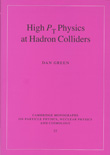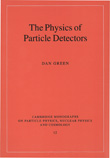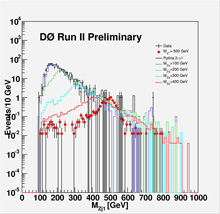 | Thursday, January 5, 2006 |
|
Thursday, January 5 3:30 p.m. Director's Coffee Break - 2nd Flr X-Over 4:00 p.m. Accelerator Physics and Technology Seminar - 1 West Speaker: S. Holmes, Fermilab Title: Accelerator Programs at Fermilab: (Past), Present, and Future Note: There will be no Theoretical Physics Seminar today. Friday, January 6 3:30 p.m. Director's Coffee Break - 2nd Flr X-Over 4:00 p.m. Joint Experimental Theoretical Physics Seminar - 1 West Speaker: T. Browder, University of Hawaii Title: From Belle to a Super-B Factory |
|
Extended Forecast |
Secon Level 3 |
|
Thursday, January 5 -Santa Fe Black Bean -Sloppy Joe -Stuffed Peppers -Sauteed Liver & Onions -Baked Ham & Swiss on a Ciabatta Roll -California Pizza - Crispy Fried Chicken Ranch Salad |
|
Thursday, January 5
Wednesday, January 11
Chez Leon Menu |
| Fermilab Today is online at: http://www.fnal.gov/today/ Send comments and suggestions to today@fnal.gov Fermilab Today archive Hurricane Relief Page Fermilab Today PDF Version Fermilab Result of the Week archive Fermilab Safety Tip of the Week archive Linear Collider News archive Fermilab Today classifieds Subscribe/Unsubscribe to |
| Dan Green's Latest Book Explains LHC Concepts | ||
  |
||
| Two books on experimental techniques in particle physics, written by Dan Green. | ||
Dan Green, program manager of the US CMS collaboration,
"Spending time in management, you need to keep your hands in the business," said Green. "The only way to find the time to think about something in detail is to teach it to someone." Green has been teaching experimental techniques in particle physics at summer schools around the world, and his lectures have led him to publishing books on the subject as well. "Many experimental particle physics books are written as engineering books," he said, explaining that such books provide cookbook-like recipes and equations to optimize technical equipment without explaining the physics concepts behind them. "I try to derive or give motivations for most of the equations in my books." The year 2005 saw the release of two books by Green, aimed at graduate students and young scientists. His book "The Physics of Particle Detectors," first published by Cambridge University Press in 2000, is now available as paperback. His new book, "High "In 2000, I said I'd never do this again," recalled Green. "But then I started thinking about LHC physics. I had a specific set of goals [of how to train students], which I tried out at various summer and winter schools. I wanted to keep it hands-on." In the summer of 2005, Green lectured at an LHC Physics Center (LPC) summer school here at Fermilab. That initial concept has blossomed to become the joint CERN-Fermilab Hadron Collider Physics Summer School, hosted by Fermilab in 2006. "We offer the summer school for students of all hadron collider experiments, not just CMS," said Green. "The Fermilab LPC is the perfect initial site for this summer school."
|
|
From LA Times.com, January 1, 2006: U.S. Research Budget Worries Scientists WASHINGTON -- Defense and space projects account for most increases in the $135 billion federal research and development budget next year, worrying scientists who fear that after years of growth the nation is beginning to skimp on technology that fuels marketplace innovation.
The realignment by Congress of research money toward national defense and human space exploration means many universities, institutions and scientists will have to scramble for new sources of money or cut back current or planned projects.
|
| Can Quarks be Excited? |
|
In experimental particle physics, one of the best ways to find new physics phenomena is to search for evidence of new particles being created at high energy. Being the highest-energy accelerator in the world, until the startup of the LHC, the Tevatron is the best machine to carry out such searches. A detector with excellent energy resolution is of crucial importance for these searches.
The liquid argon calorimeter of the DZero detector has excellent energy resolution for electrons and jets. With this experiment it is possible to reconstruct the Z boson (which is sort of a heavy photon) with almost no background. A search for new phenomena can be conducted by combining these Z bosons with jets from a, so far unseen, heavy-quark decay produced in the debris of the proton-antiproton collisions at the Tevatron. For example if quarks had substructure, their excited states could be found by such a search.
The DZero collaboration has undertaken such a search and the preliminary results contain no evidence for new physics. However the search will continue as the data collected increases by a factor of 10. For now, this result is an experimental confirmation of the standard model.
|
| Result of the Week Archive
|
|
January 1 - 4 - During the 80 hour period operations established one store that along with a previous store provided the experiments with 58 hours and 45 minutes of luminosity. - New recycler stash record of 350.6 E30 set on Tuesday afternoon. - Kicker and Collimator problems cause unwanted downtime.
Read the Current Accelerator Update
|
|
ICFA Launches New Site ICFA has a new look. Yesterday ICFA launched its newly designed Web site, which also features a new logo for the committee. Explore the new Web site.
International Folk Dancing
|


